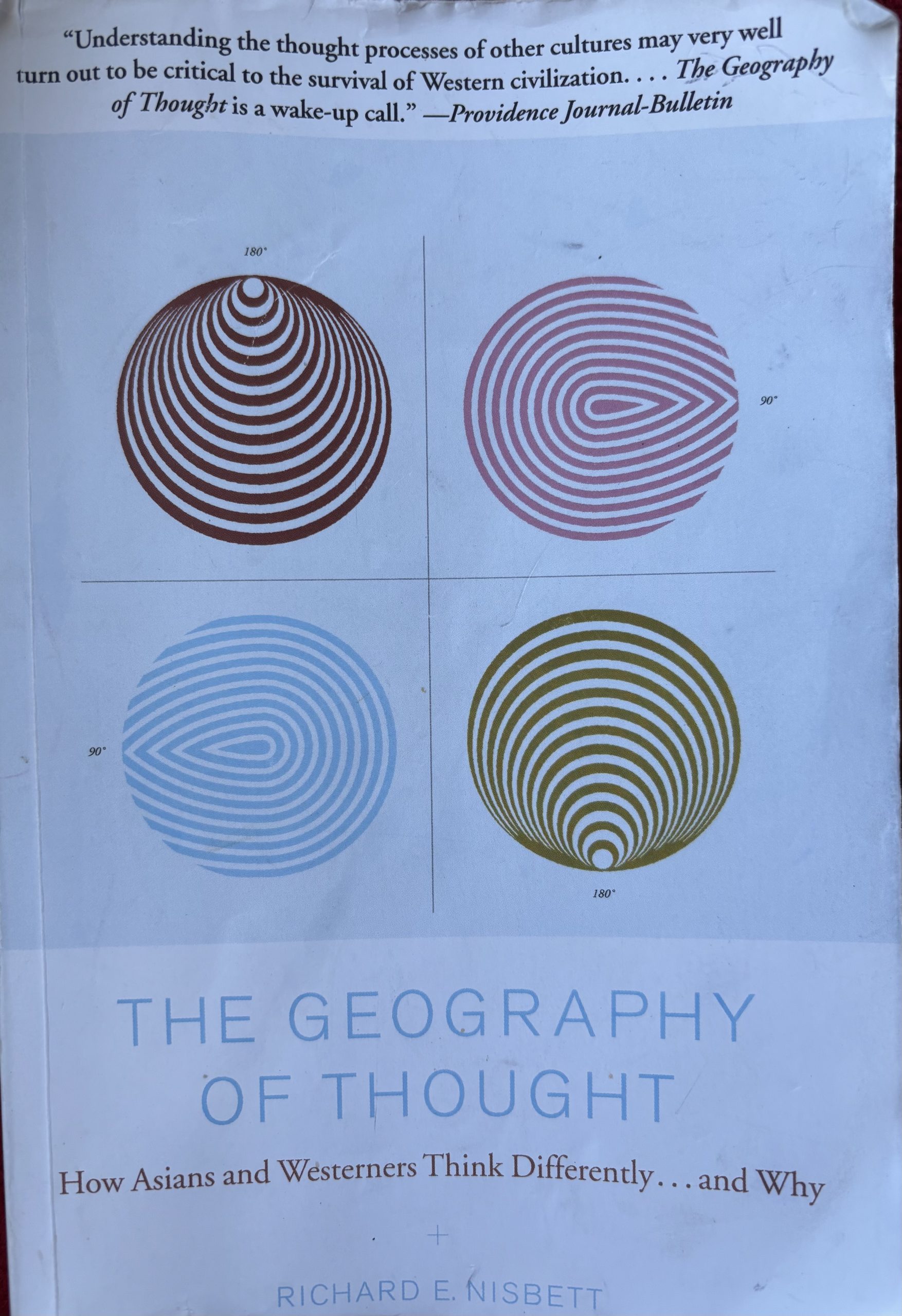I would love to share a book recommendation form Richard E. Nisbett that gained a lot of interest when I shared only just some lines from the 2014 version on LinkedIn. The newer version from 2019 can be found on amazon.de and amazon.com.
I’ve always been interested in why people think the way they think. In the context of today’s world in 2025, I’ve re-read this already well-read book. It would be too much to get into detail with all the fabulous findings there are, and how they relate to today’s world, even predicted some of what we find today, and still remain relevant. I would love to share those lines also here so that they remain findable, as the reactions were remarkable. Too little do we humans in today’s world still understand of how culture forms how we think, especially in everyday life. Culture is a word often said and referred to, and so little understood.
“The American tendency to avoid contradiction seems related to the long-standing Western inclination to search for principles that will justify beliefs. If I can show that some principle is guiding my beliefs, then I can demonstrate that, any appearance to the contrary notwithstanding, my beliefs are consistent with one another. Westerners’ need to demonstrate that their beliefs are guided by principles appears to apply also for actual choices.
…
So there is ample evidence to indicate that Easterners are not concerned with contradiction in the same way that Westerners are. They have a greater preference for compromise solutions and for holistic arguments and they are more willing to endorse both of two apparently contradictory arguments. When asked to justify their choices, they seem to move to a compromise, Middle Way stance instead of referring to a dominating principle. The greater adherence to the principle of noncontradiction on the part of Americans seems to produce no guarantee against questionable inferences. On the contrary, Americans’ contradiction phobia may sometimes cause them to become more extreme in their judgments under conditions in which the evidence indicates they should become less extreme. This tendency mirrors complaints about hyper-logical Western habits of mind often expressed by philosophers and social critics of both East and West.
…
I have presented a large amount of evidence to the effect that Easterners and Westerners differ in fundamental assumptions about the nature of the world, in the focus of attention, in the skills necessary to perceive relationships and to discern objects in a complex environment, in the character of causal attribution, in the tendency to organize the world categorically and relationally, and in the inclination to use rules, including the rules of formal logic. Two major questions arise in light of the contentions. Does it matter? Is it going to continue?
…
And if the nature of thought is not everywhere the same?”




